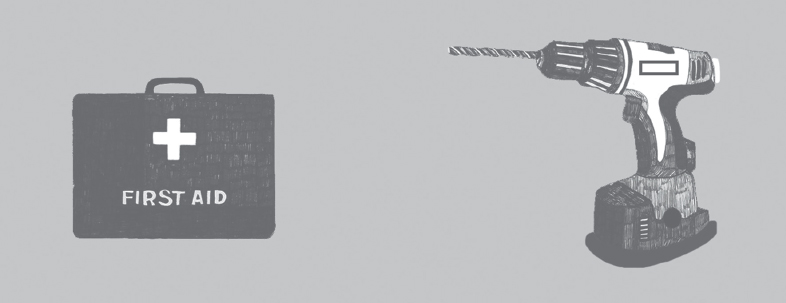


MakerNurse offers workspaces, materials and support to help nurses make more effective customized hospital equipment.
Nurses represent the interface between patient comfort and doctor treatment. This perspective often results in nurses being the first to react to each unique patient’s needs, resorting to crudely customizing hospital equipment. Now in the United States, MakerNurse is an educational workspace that helps nurses build solutions to unique patient scenarios.
Founded by the director of MIT’s Little Devices Lab, and a lecturer of device design also at MIT, MakerNurse acts as an educative platform – their ‘makerspaces’ help hospitals utilize nurses’ inventiveness by providing dedicated spaces and tools for developing and testing equipment. Their blog and website community encourage the free sharing of ideas, bypassing patent-chasing companies. They believe that daily making and urgent response is what leads to better care, not ‘grandiose ideas’ that are incubated over decades.
Situated inside a hospital, a medical ‘makerspace’ provides nurses and other health-care providers with direct access to a wide range of suitable tools and materials. The makerspace is stocked with adhesives and fasteners, such as Velcro and zip ties; textiles and electronics, including sensors and microcontrollers; and a range of tools from pliers and sewing needles to 3D printers and laser cutters. The space is divided into a series of workstations, each equipped to address a specific medical challenge, such as fluid control or assistive technology.
Medical staff can use the makerspace to prototype a new tool from scratch or to upgrade a hospital device that already exists but does not exactly perform to their specific needs – for example adding a sensor to a take-home pill bottle to monitor use or customizing materials for individual patients.
While all the designs and ideas come directly from nurses working in hospitals, quality control and rigorous health and safety standards must be met before the new designs can be implemented. All devices made in the makerspaces are sterilized and tested through a quality improvement or institutional review board study before being used on the hospital floor. In order for the nurses to take credit for, document and explain how to make and use their new innovative designs, a ‘selfie station’ is set up in each makerspace. Users can upload their instructions, tips, photos and videos.
Founders Anna Young and José Gomez-Marquez have the perfect technical backgrounds to launch a scheme such as this. Anna has spent eight years teaching field-based prototyping workshops to health-care professionals, engineering students and industry executives across South America, Africa and Asia. She has expertise in digital fabrication and design, building networks of health technology innovators and designing clinical studies to move health technology prototypes from the lab and into practice.
José, originally from Honduras, has worked for the past decade combining health and DIY technologies. His research projects include crowdsourced diagnostics, paper microfluidics and reconfigurable diagnostics for extreme environments.
DIY medical kits, such as an initiative called iLab, developed to 3D-print medical equipment after the Haiti earthquake, are being used to solve immediate and unique medical needs. By enabling nurses to safely customize equipment and share these ideas, MakerNurse is hoping to foster a culture of innovation at the frontline of medical care.

__TAKEAWAYS

Website: www.makernurse.org
Contact: hello@makernurse.org
Innovation name: MakerNurse
Country: United States
Industries: Design / Health & wellbeing